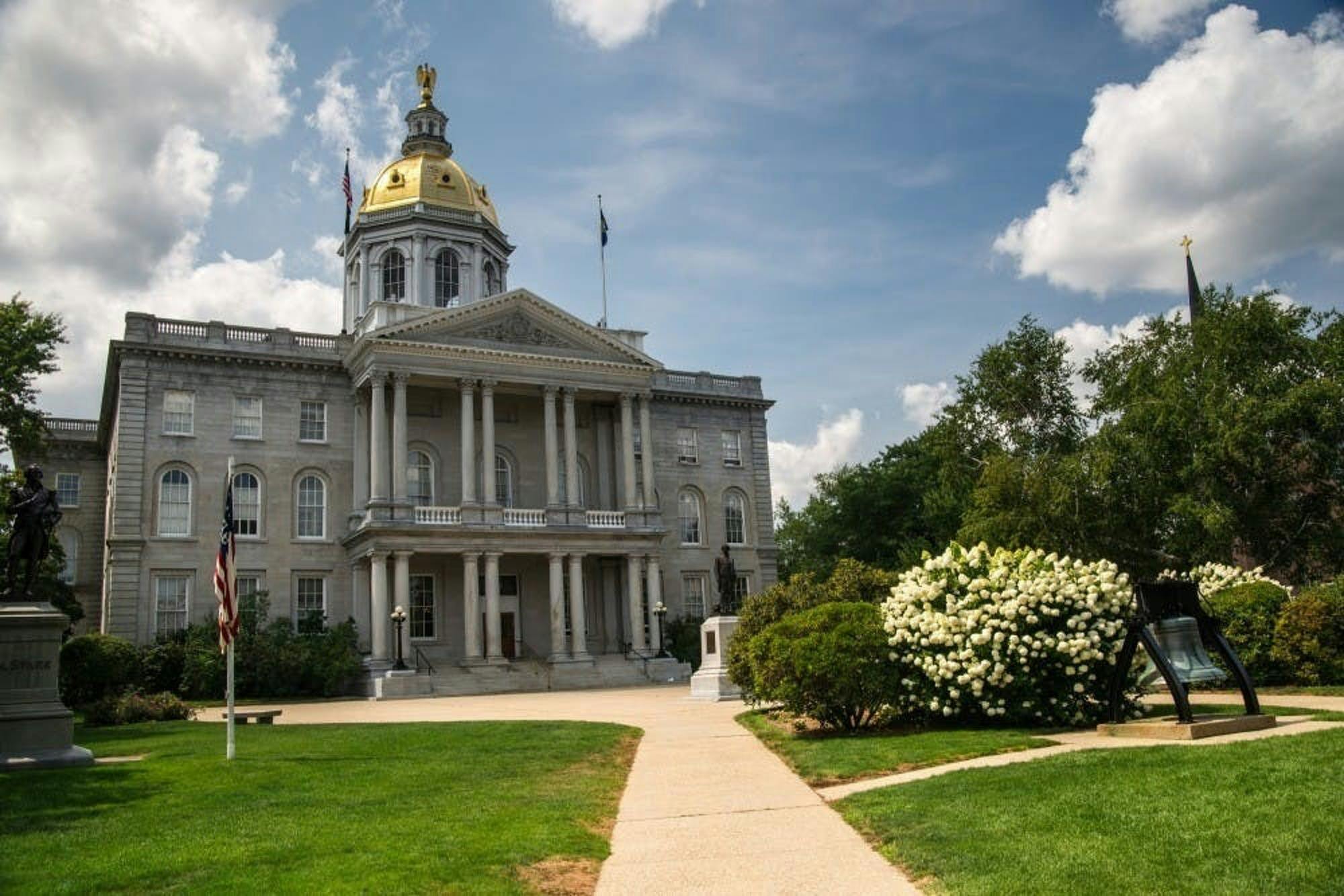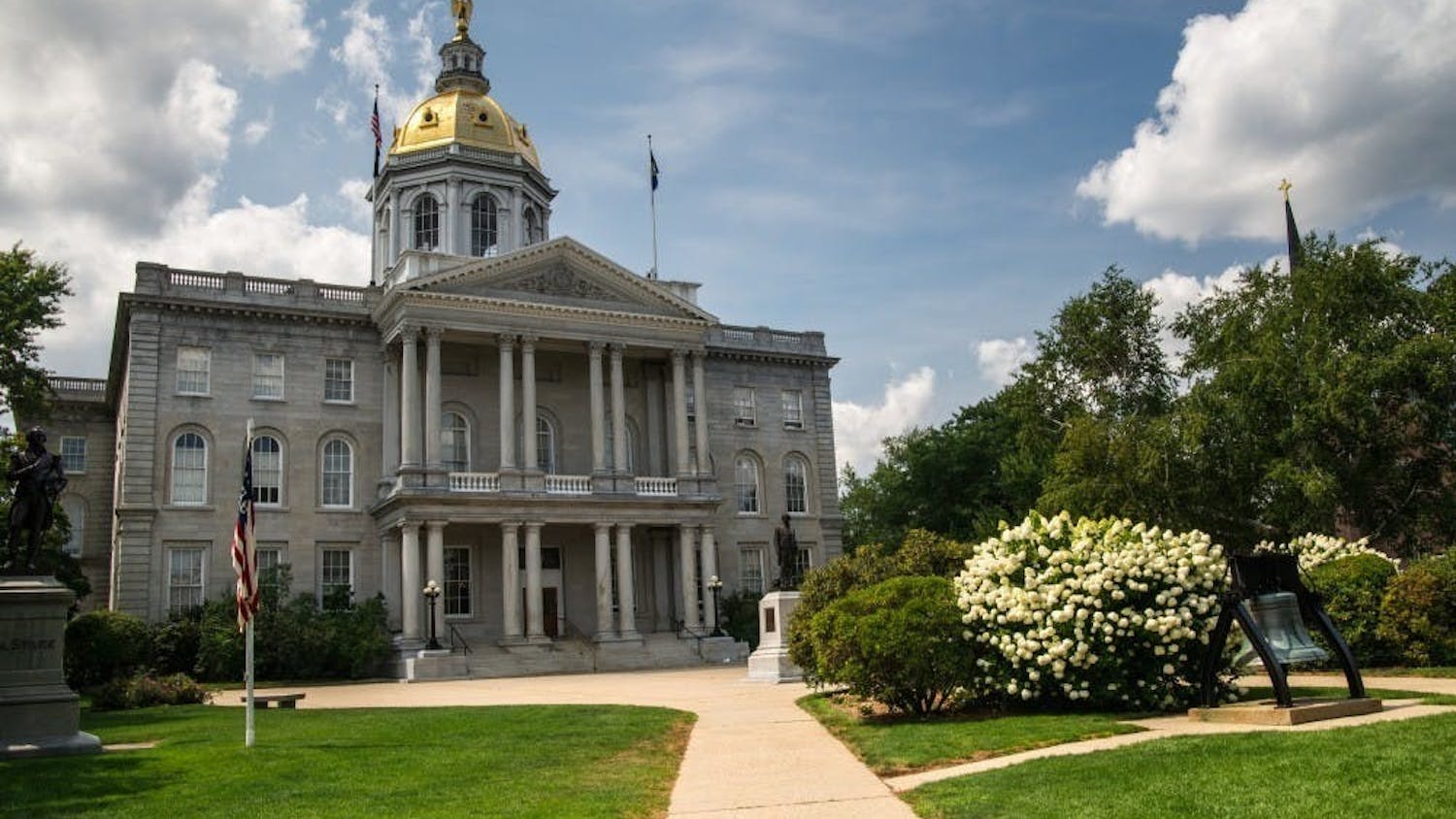During the 2021 New Hampshire legislative session, Hanover’s representatives cast votes in April on two controversial bills — H.B. 2 and H.B. 111. All four of Hanover’s representatives voted against H.B. 2, a state budget bill that contains a controversial amendment prohibiting state contractors and schools from teaching about concepts like systemic racism and sexism. Two Hanover representatives, including government professor Russell Muirhead, voted against H.B. 111, which would repeal “official immunity,” the legal principle that protects public employees from legal liability for actions undertaken in good faith.
H.B. 2 — the annual, must-pass state budget bill — includes a provision that would forbid local governments and any contractors they hire, as well as all schools and universities that receive state funding from teaching their employees or students about “divisive concepts” like “race and sex scapegoating.” Dartmouth has since signed onto a letter from the New Hampshire Businesses for Social Responsibility, a lobbying group, that urges the Republican-controlled state Senate and Gov. Chris Sununu, also a Republican, to reject the bill, which was passed by the GOP-controlled state house on April 7.
Sununu expressed opposition to H.B. 544, the bill that was eventually appended to H.B. 2 as the amendment, in a March interview with New Hampshire Public Radio, noting that it “really limits free speech.”
NHBSR executive director Michelle Veasey said that the organization was “inspired” to write a letter against the bill because many members and associates of their organization felt that the legislation would “tarnish” the reputation of the state. She added that because one of the common goals of the NHBSR is to foster inclusive workplaces and diversity, the group decided to take a stand against the bill.
“We had a workplace racial equity learning challenge during Black History Month, and if this bill was passed, more than half of the participants in that challenge would not have been able to participate,” Veasey said.
Veasey added that over 225 businesses and organizations have signed on to the letter against the bill. She also said that colleges and universities — including Colby-Sawyer College, Southern New Hampshire University and the University of New Hampshire — signed because of the negative impact it could have on recruiting and retaining a “diverse” student body.
“With this bill, universities couldn’t possibly provide a full education to their students,” Veasey said. “It would be like trying to teach with one hand tied behind your back.”
Kate Hilton ’99 said that she is concerned about the “incendiary” bill as it would prevent teachers and employers from being able to discuss issues like systemic racism with “openness” and “honesty.” As an alumna of the College, she said she wrote to President Hanlon asking Dartmouth to speak out against the bill, as she believes it goes against the College’s “core values.”
“I applaud President Hanlon for signing the [NHBSR] letter,” Hilton said. “However, I don’t think [the College] did enough, and they need to take stronger action going forward.”
Hilton said that the College should directly lobby the state legislature to vote against H.B. 2. She added that she would also like the College to conduct an analysis of the bill to see if it might result in reduced state funding of College research and the institution in general.
Muirhead, a Democrat, said that if passed, the bill could potentially cause some teachers and Dartmouth professors to “shy away” from teaching about topics concerning systemic racism and sexism in America. He added that some teachers may be “fearful” of being punished for teaching the “whole truth” about America’s past and present.
“This whole situation is a calamity,” Muirhead said. “Because Republicans decided to put this language in the bill, we’re either going to have this awful amendment or we won’t have a budget.”
He added that he believes that many Dartmouth professors will continue to teach what they “believe is right” in spite of the bill.
College spokesperson Diana Lawrence wrote that Dartmouth “prizes and defends the right of free speech and embraces open inquiry.”
Another bill that has attracted debate among the Dartmouth community is H.B. 111, which would repeal “official immunity” for all public officials that protects them from legal liability for actions done in “good faith.” The bill was drafted in response to recent controversies over the protections that this immunity grants to police officers.
Hanover’s four representatives, all Democrats, split on the bill. Rep. James Murphy and Muirhead voted against H.B. 111, while Rep. Mary Hakken-Phillips voted for the bill and Rep. Sharon Nordgren did not vote on the bill. The bill was ultimately tabled by the House, meaning that it can be modified and voted on again, likely after significant changes.
Muirhead said that he opposed H.B. 111 because he felt that the scope of the bill was “too broad” in nature as it would apply to all public officials, not just police officers. He added that he was concerned that it could expose employees like teachers, fire chiefs and zoning board officials to lawsuits that would make it harder for them to do their jobs. According to Muirhead, Americans for Prosperity, a group funded by the conservative Koch Brothers, supports the bill, as it would make passing and enforcing local regulations “far more difficult.”
“As currently written, the bill could empower corporations to sue individual public officials to raise the cost of enforcing regulations,” Muirhead said.
Muirhead added that he would “strongly support” a revised version of the bill that would specifically hold police officers accountable for their misconduct. He added that he is also supportive of the George Floyd Justice in Policing Act, a bill passed on March 3 by the U.S. House of Representatives that would repeal qualified immunity for police officers — a federal court doctrine — nationwide.
Nicolas Macri ’24 said that he supports H.B. 111 because he believes immunity for police officers is a “bad doctrine.” He added that he felt that the bill is “very important” for promoting government accountability, especially in cases involving wrongful death or injury of civilians.
“Just because you have a government job doesn’t mean you should get a pass,” Macri said. “Our laws should be applied fairly to all citizens, including public officials.”




